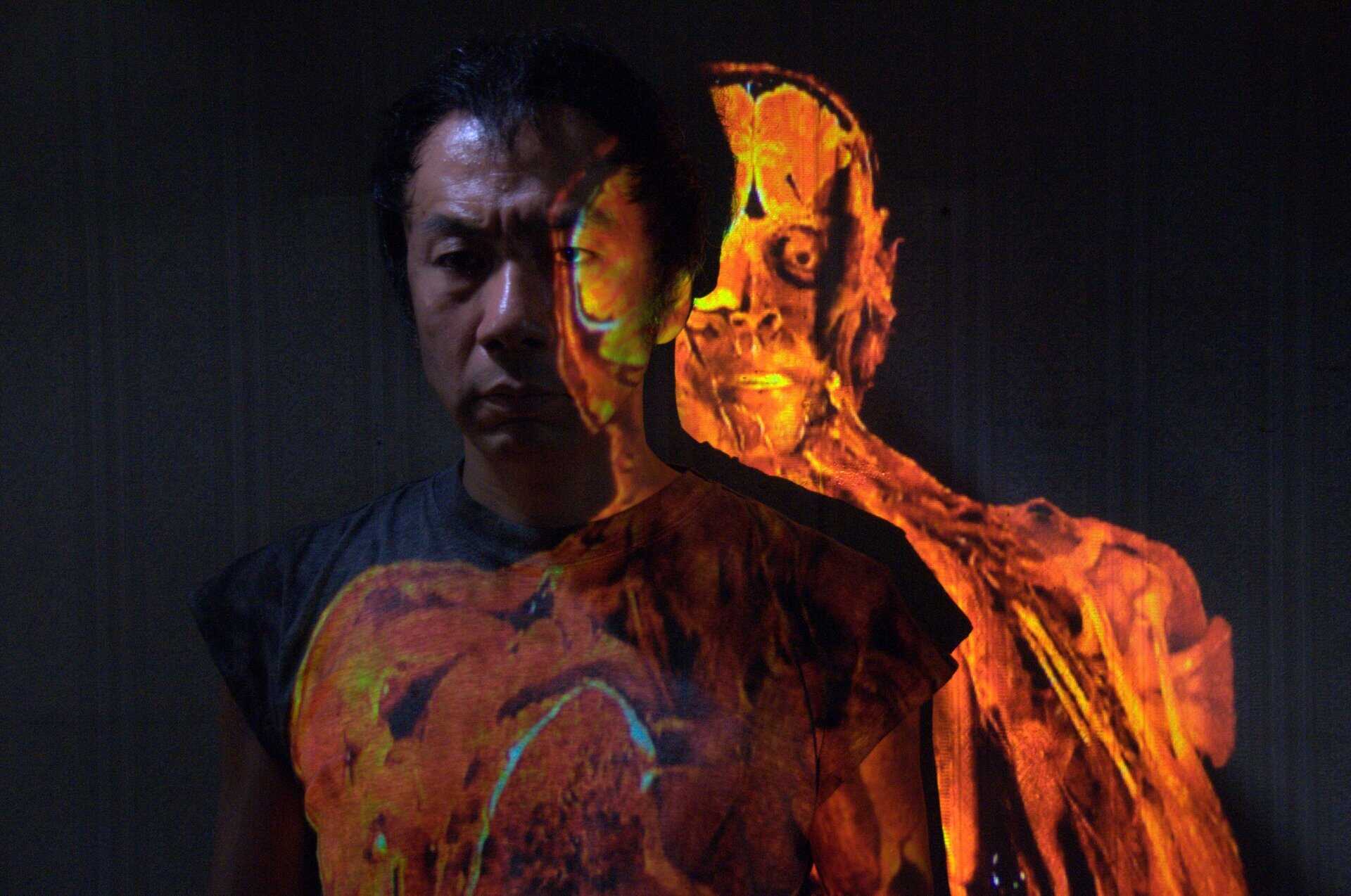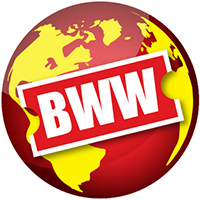There’s a quote from the late Paul Nelson, the Mercury Records A&R person who signed the New York Dolls, in today’s New York Times obituary for David Johansen, on how the Dolls were in essence a local band, celebrated by local critics as an idea and a scene, that, like the Roches, never made it out of that great America of the Saul Steinberg cartoon map where everywhere else was just a mirage and New York was the only real place. Perhaps the Dolls themselves, at least at first, never thought of themselves as anything but a local noise, so why not call themselves New York? It’s not exactly a great marketing strategy, given that there are people elsewhere whose dream is not to make it where if you can make it there you can make it anywhere, but if you can make it there you don’t have to make it anywhere else, because there is no anywhere else.
I saw the Dolls in a San Francisco nightclub after the release of their first album and before the second. The show was so premised on the crowd receiving them as stars, as rock gods, that since that wasn’t happening, wasn’t in the room, there was barely anyone there and they were curious at best, nothing they did came across with the slightest conviction or punch. It was listless and forgettable.
Their second album—great title, Too Much Too Soon, which meant they were all born for the silver screen, and it didn’t really come through til later that it was too little too late—showed good taste in pointless covers (likely their ideas, maybe Shadow Morton’s) with “Stranded in the Jungle” and the obscure “Bad Detective.” “Human Being” moved me on the radio. It was big, it was a cry for help, to be heard, a refusal of all apologies, and a great battering sound.
I was shocked at how good, how unforced, how emotionally complex David Johansen was with “Frenchette” on his first solo album—this person confessing that it was all a fake, that it pained him, that he would never live up to all the promises others had invested in him, but still, leatherette wasn’t leather but it wasn’t nothing, it had its own value, and not a moment was pressed, he wasn’t making a speech, just finding his way through a sad song of his own. I appreciated what he tried to do with the Harry Smiths, and he had his moments there. I could never understand why it sounded so much richer on the advance cassette of the album with “Frenchette” I had, and still have, than on any other format. My friend Howard Hampton sent me a video of a Johansen performance from July 30, 2016, in Damrosch Park in New York, of a Lou Reed song that over nine minutes plumbs the depths, comes up for air, goes right back down, nothing overdone, with Earl Slick’s guitar playing to good, so right, it almost doesn’t make sense.
But what I really feel, reading about his death, is the carnage and the waste and the price paid. Why are some bands—the New York Dolls, the Ramones, the Band, completely gone, everyone dead, when there are still two Beatles and three Rolling Stones, for that matter three Sex Pistols and three from the Gang of Four? What is the chemistry and the poison that infects some and lets others go? Money might have a lot to do with it—I don’t know about the Ramones, but after his cancer diagnosis David Johansen went online to ask for help, and except for Robbie Robertston all of the members of the Band died in bankruptcy or worse. What about the people who wrote about the Dolls and the Ramones and the Band, who were part of their story, who will never write another word—Lester Bangs, Robert Palmer, Nick Tosches, Ed Ward, Paul Nelson, so many more? You get old enough, you can get survivor’s guilt along with it.
I used to have a mental log of so-called mondegreens. They’re out of reach now. But your “wino down the road” is now The Song. And I’ll bet Robert Plant would agree.
On the radio, all I remember is “Open the Door, Richard,” by what seemed like dozens of interchangeable singers. I hated it then and am glad it’s disappeared. My father played the piano and sang novelty songs from the 1920s. I listened to show tunes because my parents had a lot of Broadway albums—I remember being shocked by the power and mystery of music, what it could do to you and how you couldn’t tell how or why, in a little rhythmic shift in a song from the Flower Drum Song original cast album—I’d drop the needle on that spot over and over to feel that feeling, but also to try to understand it.
One day when I was maybe 9, maybe 10, someone held up a transistor radio so I could hear Bill Haley and the Comets’ “Rock Around the Clock.” It did nothing for me. But then I heard Little Richard.
Preston Lauterbach said what he meant. That can be harder than it looks, because some people can be made uncomfortable by just that. You want him to soften what he thinks. But he doesn’t, because one purpose of writing is to say what you think.
I learned a lot about writing and editing from Jann Wenner at Rolling Stone when I was starting out in 1969. I remember clearly one conversation over a piece I’d written where I used the modifier “arguably.” Jann crossed it out and said never to use it. It’s a weasel word, he said, a way of backing away from what you want to say—something I found echoed more powerfully many years later when I read Georges Bataille on young people “afraid of the sound of their own words.” Also, Jann said, it’s clumsy. Four syllables in eight letters. It breaks up a thought and slows down the sentence. I’ve never used it since. I hope.
Think of Paul Newman in Slap Shot. He could go convincingly crazy fast enough. But yes, he’d be better as Sal Paradise—because who are Butch Cassidy and the Sundance Kid but Paul Newman as Jack Kerouac and Robert Redford as Neal Cassady?
I confess I don’t have the expertise to make the kind of calls you’re looking for. I recall a time at the Aspen Music festival when the orchestra was steaming through a piece. It had built up a tremendous momentum, with cross rhythms and a dominant melodic line that was extraordinarily supple. And then a violin missed a—How can I describe it? Point of orientation? Jumped a pause? It threw everything off, and the ensemble never recovered. It limped to the end without life or purpose. When it happened, I turned to the person next to me and said, “Did you notice that?” and she nodded—it was just too wrong not to.
But if I have an ear for that it’s in writing, not music. I’m reading Peter Wolf’s memoir. He has wonderful stories to tell of his encounters with all sorts of people, and while he clearly has an ear for music, he has none for the rhythms and melodies of prose. He tells his stories—of, say, at length, his time as a twenty-year old with Muddy Waters’s band—in the manner of a very dutiful student in a high school composition class, so that sentence to sentence, as I said of that orchestral slip above, there is no life and no purpose. Sometimes the stories are so good, or unlikely yet believable, you can ride over all that. But most of the time I want to yell through the page: Forget your fucking rulebook! What do you want to say? Or are you still afraid your teacher is going to fail you? So you write C papers for the rest of your life.
Hound Dog. It’s basically a telling of stories, back and forth between the two of them, pretty much in chronological order. They don’t sugarcoat anything. Leiber tells the story of how he picked up a couple of party girls in a bar and had a heart attack while driving them to his house. He crashed his Jaguar; one of the ladies died. As best I can tell, that was before Elvis and the Coasters.
Less recently, you speculated about the surviving members of the Rock & Roll Hall of Fame, and since Mike Stoller is still alive, I decided to investigate. Not that their roster is definitive, but it’s the easiest way to get a fairly comprehensive list of elderly rockers and adjacent artists. Apologies for any mistakes. And long may they all wave, even the ones I don’t much care for.
And Van Morrison hits 80 August 31 and Neil Young November 12. Thanks for this inspiring and sobering list.
Hi Greil, I recently read and enjoyed the two available compilations of Lester Bangs’s writing. The one edited by John Morthland, Mainlines, Blood Feasts, and Bad Taste, was definitely easier on the psyche to read. However, based on what I know of Bangs, the compilation you edited, Psychotic Reactions and Carburetor Dung: The Work of a Legendary Critic: Rock ’n’ Roll as Literature and Literature as Rock ’n’ Roll, probably painted a more well-rounded portrait . . . warts and all.
One thing that comes shining through in both compilations is that the man was capable of being laugh-out-loud hilarious. There were times when reading some of his reviews/articles that I was glad my mouth was empty of food. In my 50+ years of reading music writing, I think Lester Bangs is the closest I’ve ever seen to a stand-up comedian. Was he equally as funny a cat in person (whether in the flesh or on the telephone)? I’ve heard the stories of how Bangs could try one’s patience as Terry Lennox could Philip Marlowe’s . . . but I’m guessing there were also great rewards as well (apart from what resulted on the written page).
Also, along the lines of humor and stand-up comedians, I’ve read your mentions of Monty Python and Firesign Theater albums, Richard Pryor’s stand-up comedy albums, and John Oliver’s weekly show. Was wondering if there are any stand-up comedians in the past 25 years whose work you’ve enjoyed?
These days it seems stand-up comedy can run the range from the boneheaded/unfunny (Joe Rogan, Bill Maher, Russell Brand) who seem to love to blame “woke”/politically progressive sensibilities for their inability to change their schticks over the decades . . . to comedians whose surreal/cerebral style of comedy can be something nothing short of wonderful. In this latter camp I’d include British comedian Stewart Lee and Maria Bamford (who’s managed to turn her mental health struggles into a strength and asset). Anyway, was curious if either of them . . . or anyone else in that universe . . . has crossed your radar.
Thanks always for this column. —BILLY INNES
I stopped going to stand-up shows when I got tired of comedians as old as I was trying to insult my wife and myself for being too old. As in, “Now, the Doors—you’ve probably never heard of them, but they were a rock group in the sixties . . .”. On records I’ve brought home various things but it’s not easy to make a comedy album that doesn’t wear itself out overnight. There’s something in Richard Pryor that often makes me say, of something I’ve heard many times before, “Did he really say that? In that way? I never heard that before.”
Something about Lester that needs to be kept in mind: as his reputation grew, as those teardowns with Lou Reed appeared in Creem, there was more and more pressure due Lester to be ON. The wild man in his prose had to come out for the small-minded people who wanted him to validate his art with his life, and Lester often tried to live up to it all. So it became cool to be able to say you’d given him drugs, gotten drunk with him, saw him fucked up.
With me and certainly others he was often morose, full of doubt, frustrated at the journalistic ghettos or niches to which he felt consigned. He wrote a great deal of stuff—some of his best and most imaginative work—that no one would publish. He wanted respectability he felt he didn’t have and might not deserve. He was very sensitive to what he perceived as slights, often acting on life-changing or damaging situations that he completely misunderstood. Read the last piece in Psychotic Reactions and you’ll see what I mean.
It’s not right that he didn’t get to live the life he deserved. It’s not right that John Morthland didn’t. It’s not right that Ed Ward, who I couldn’t have done Lester’s book without, didn’t write the books he most wanted to. We’re lucky they all got some chances and made what they did of them.








